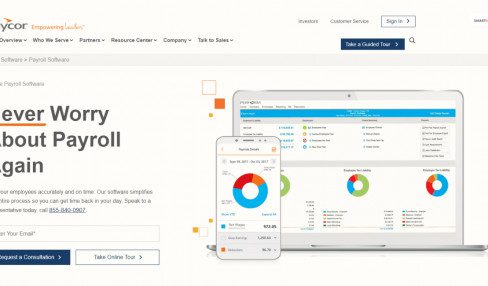Optimizing Business Performance With AI-Based Automation Solutions
5 Mins Read
1 comment
Published on: 06 October 2023
Last Updated on: 09 October 2024

toc impalement
Master data management (MDM) is crucial to running a successful business. It involves consolidating, cleansing, and governance of an organization’s critical data to ensure accuracy, consistency, and reliability.
A solid MDM strategy is essential for businesses to make informed decisions, improve operational efficiency, and maintain a competitive edge in today’s data-driven world. Keep reading this guide to creating a master data management strategy for your organization.
The Importance Of A Solid Master Data Management Strategy
A robust master data management strategy is vital for several reasons. Firstly, it enables businesses to have a single version of the truth by establishing a central repository of accurate and up-to-date data. This ensures everyone within the organization works with consistent information, minimizing errors and miscommunications.
A solid MDM strategy improves data quality by eliminating duplicate, outdated, or inconsistent data. This, in turn, enhances the overall reliability of business intelligence and analytics, enabling organizations to make well-informed decisions based on accurate insights.
Challenges In Traditional Master Data Management Strategies
Traditional approaches to master data management often face several challenges that hinder their effectiveness. One of the main challenges is the manual effort required to collect, cleanse, and maintain data. This consumes valuable time and resources and increases the risk of errors and inconsistencies.
Furthermore, with the ever-increasing volume, variety, and velocity of data, traditional MDM strategies struggle to keep up. They often lack the scalability and agility needed to handle the vast amounts of data modern businesses generate.
How AI-Based Automation Solutions Enhance Master Data Management
AI-based automation solutions offer a revolutionary approach to master data management. By leveraging advanced machine learning algorithms, these solutions can automate various aspects of the MDM process, including data collection, cleansing, and governance.
One key advantage of AI-based automation is its ability to handle large volumes of data with speed and accuracy. It can rapidly process and analyze vast amounts of data, identifying patterns, inconsistencies, and anomalies that would be difficult for humans to detect manually.
Moreover, AI-based automation solutions can continuously learn and improve over time. They can adapt to changing data patterns and business requirements, ensuring that the MDM strategy remains effective and relevant in dynamic environments.
Benefits Of Using AI-Based Automation In Master Data Management
Implementing AI-based automation in master data management brings forth numerous benefits for businesses. Firstly, it significantly reduces the manual effort required to collect, cleanse, and maintain data. This frees up valuable resources that can be redirected towards more strategic initiatives, such as data analysis and decision-making.
Secondly, AI-based automation improves data accuracy and consistency. Businesses can rely on high-quality data for making critical decisions by automatically identifying and resolving inconsistencies or errors. This ultimately leads to improved operational efficiency and better customer experiences.
Additionally, AI-based automation enhances data governance by enforcing rules and regulations consistently. It ensures compliance with data privacy and security policies, reducing the risk of data breaches and regulatory penalties.
Key Considerations When Implementing AI-Based Automation In Master Data Management
While AI-based automation offers significant benefits, there are several key considerations to keep in mind when implementing it in master data management:
Data Quality And Readiness:
Ensure your data is clean, complete, and well-structured before implementing AI-based automation. This will ensure accurate and reliable outcomes from the automation algorithms. The manual data inspection and evaluation process in hundreds and millions of columns is difficult to keep up with. This eventually necessitates the need for data readiness and quality.
Change Management:
Implementing AI-based automation may require changes to existing processes and workflows. Communicating and training employees on these changes is crucial to ensure smooth adoption and minimize resistance. After scanning metadata and their application in machine learning, the management becomes easy with lineage mapping. With this, data management quality is also included.
Data Privacy And Security:
AI-based automation involves handling sensitive data. It is essential to prioritize data privacy and security by implementing robust data protection measures and adhering to relevant regulations. By determining data such as credit card numbers or phone numbers in APIs, one can exercise rules for data privacy enforcement.
Integration And Scalability:
Consider the integration capabilities of the AI-based automation solution with your existing systems and infrastructure. Ensure the solution can scale to handle increasing data volumes and accommodate future business growth. Such automation can have a positive impact on the accuracy as well as the productivity of associations.
Choosing The Right AI-Based Automation Solution For Your Business
After all, you are trusting your confidential data with this innovative technology. When selecting an AI-based automation solution for master data management, it is important to evaluate several factors:
Functionality:
Assess the solution’s capabilities in automating the specific aspects of master data management that align with your business needs. Consider whether it covers data collection, cleansing, governance, or other relevant areas.
Ease Of Use:
Look for a user-friendly and intuitive solution that enables your team to easily navigate and leverage its capabilities without extensive training or technical expertise. If you come up with something that has a complex interface, there is a probability of it being a failure.
Scalability And Flexibility:
Ensure the solution can handle your current data volumes and accommodate future growth and changing business requirements. It should be flexible enough to adapt to evolving data patterns and regulations.
Vendor Reputation And Support:
Research the vendor’s reputation in the market, including their track record of successful implementations and customer satisfaction. Assess their level of support, including training, documentation, and ongoing technical assistance. And in business, who doesn’t like customer retention?
Final Thoughts
AI-based automation solutions have the potential to revolutionize master data management strategies. Businesses can streamline operations, improve data accuracy, and enhance decision-making capabilities by automating data collection, cleansing, and governance processes.
However, successful implementation requires careful consideration of data quality, change management, privacy and security, and scalability. By choosing the right automation solution and following the steps outlined, businesses can unlock the full potential of AI-based automation and pave the way for a future of efficient and effective master data management.
Read Also:


















1 comment
Jinnie October 10, 2023 at 4:23 pm
Keep this going please, great job!